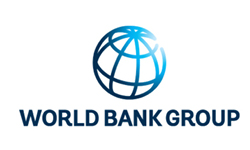934 results found
Featured results



More results
The goal of this paper is to describe the common features of small scale providers, propose common typology for describing and classifying different types of SPSPs, assess the scale and knowledge of SPSPs and compare patterns and trends in small scale water supply and electricity services.

This document carries out analysis in several countries to identify the role of small-scale providers (SSP) of water and sanitation services, as well as why these small scale providers exist and their experiences in Peru.


Overall, the study has taken a broad approach to defining OA - going well beyond the minimalist notion of simply guaranteeing legal access to the grid for generators and wholesale buyers.


On 27 January 2016, the Global Infrastructure Hub was represented by Senior Director, Richard Timbs, at the global launch of the International Infrastructure Support System (IISS) at the Inter-American Development Bank in Washington.
The iRAP case studies showcase activities that are saving lives and preventing serious injuries on roads.
This paper is intended to capture the main lessons learned from conducting Open Data Readiness Assessments and assisting countries with their implementation.

We asked innovators from all over the world, how can digital ideas be applied to solve economic or social infrastructure issues? Today we’re announcing our Top 10 finalists for InfraChallenge!
This policy brief outlines promising ideas to attract instiutional investors to pay for infrastructure they have not convinced pension funds or affluent individuals to invest, especially in emerging economies with untested issuers, The “tax-kicker” bond being proposed here could solve this issue.

Today the GI Hub has released Transition Pathways to Sustainable Infrastructure, a new resource to help governments shape future infrastructure to meet global climate targets and the UN Sustainable Development Goals with practical, accessible research and open consultations.
Today we released two new supplements to our Infrastructure Monitor report, focusing on the role of blended finance and environmental, social, and governance (ESG) factors in infrastructure investment. These latest updates, developed in partnership with Convergence and GRESB, offer a comprehensive examination of both areas, providing valuable insights for infrastructure professionals.
This publication outlines the current efforts of the Asian Development Bank to promote sustainable infrastructure in Asia and the Pacific, looking at how lives can be improved with regards to infrastructure in the energy, transport, water & waste, communcations technology areas.


Infrastructure project preparation capacity is weak across most regions of the world. It is critical to strengthen these capabilities to address one of the major bottlenecks in attracting private capital to infrastructure, which is the lack of a bankable, investment-ready pipeline of infrastructure projects


This OECD paper provides a stocktake of investor practices and adoption of Environmental, Social, and Governance (ESG) in their investment processes.



Private investors have shifted away from non-renewables in both developed and developing markets. The appetite for renewables is stronger in developed markets.


The paper discusses general trends in involving the private sector in public projects, PPPs and asymmetric information, and policy conclusions.
This guidance note will help define core areas of support and set the course for ADB's country partnership strategy investments in irrigation and assists.

In a recent study, we looked at the economic effects of the EU’s external aviation policy with third countries, focusing on 27 countries with which the EU has Air Services Agreements with varying degrees of liberalization.2


Preliminary evidence shows superior performance for some sustainable infrastructure investments in comparison with other infrastructure sector investments


Is ESG investment just a passing fad? What is the future of China’s Belt and Road Initiative? And does the Covid-19 pandemic mean we must reassess climate change targets? Our CEO Marie Lam-Frendo answers questions on the future of infrastructure.




 InfraChallenge
InfraChallenge




